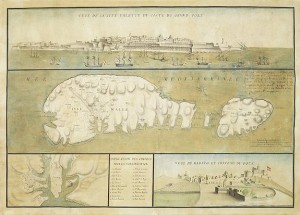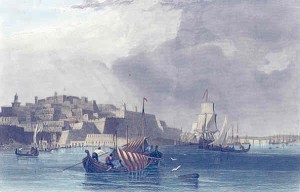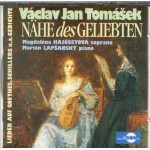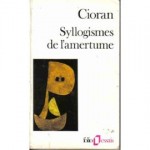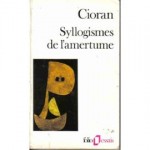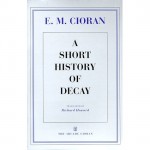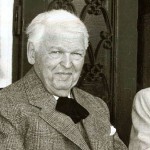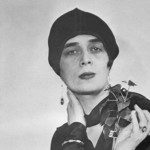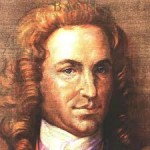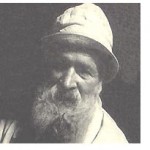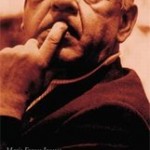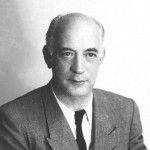Romanian Dictionary of Quotations, Selected & Translated by Constantin ROMAN: Letter ‘C’
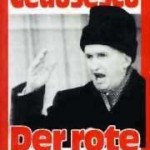
Nicolae Ceausescu
Ceausescu, Nicolae:
“We love Him because this Country is free under the sun
The People of this country are free under the real Leader
We love him because He embodies the conscience of the Working people
And that he makes us proud that as a man He is Romanian”
(
Adrian Paunescu (b.1943), Ceausescu’s Poet Laureate, Senator)

Elena Ceausescu
Ceausescu, Elena:
“Ceausescu would have deserved to be prosecuted for each act committed under his orders in Romania, but only before a free, normally elected tribunal, acting in the spirit of respect for human rights. I know not of what possible extenuating circumstances he might have availed himself, other than his wife being more awful than he was. She was the main guilty party, but this is no excuse for the crimes perpetrated by her husband.
What ever may be the case, all criminals should have the right to a just judgement. The one which unfolded for the Ceausescu couple was a farce and its conclusion a murder. The general impression left by the Ceausescu régime and by this final masquerade is one of disgust. From the human point of view I felt a certain pity. Whilst facing the death sentence Ceausescu proved to be more courageous than one would have believed.”
(
King Michael of Romania (b. 1921)
(“HM Michael of Romania – an Unfinished Reign”,
Conversations with Philippe Viguier Desplaces, Michel Lafon, 1992)

Paul Goma
Censorship:
“It is absurd. I must listen to Radio Free Europe extracts from my book, of which I have not seen a single copy.”
(
Paul Goma (b.1935), writer)
(Interview to Associated Press, 1971)

Pss Marthe Bibesco
Chanel, Coco:
“A woman who governs without parliament, for much longer than a minister. A woman who must take 400 decisions a year, whose jurisdiction enforces the law, beyond the frontiers of our country.”
(
Marthe Bibesco, (1885-1957),
Writer, Socialite)

Georges ENESCO
Childhood:
“Because a child is so small, one assumes that he has minuscule dreams. How very wrong one could be! I was writing operas, it is true, rather odd operas, because the shortest one had only twelve “Mesures”. I still have the manuscript: on the cover it says “Terre Roumaine” opera for violin and piano by Georges Enesco, aged five”.
(
Georges Enesco, (1881-1955), composer, conductor, violinist)

Constantin Brancusi
Children:
“When we are no longer children, we are already dead.”
(
Constantin BRANCUSI, (1876-1957), Sculptor)

H.M. King Michael
Children of Romania:
“There is no word which could describe my heart-rending sentiments: what the Ceausescus have perpetrated was awful. They were obsessed by the idea of population growth. All form of contraception was strictly forbidden. Ceausescu decreed that a policeman should witness all gynecological consulatation, in order to avert any clandestine abortion. The result? Unable to feed their offspring, the Romanians abandoned their children on a massive scale. This led to a situation, unseen for two centuries: sordid orphanages, shameful child adoption traffic and to cap it all a wave of AIDS contamination. The Romanian children were treated like animals and the Ceausescus profited from it. It is sickly, it is monstrous. Now we are faced with an uphill struggle and it will not be easy.”
(
King Michael of Romania (b. 1921)
(“HM Michael of Romania – an Unfinished Reign”,
Conversations with Philippe Viguier Desplaces, Michel Lafon, 1992)

The Bald Prima Donna
Circle:
“Take a circle and caress it – it will become vicious.”
(
Eugene Ionesco (1912-1994), dramatist)
(“The Bald Primadonna”)

Cioran
Clairvoyance:
“Clairvoyance is the only vice that gives one freedom – that is freedom of the desert.”
(
Emil Cioran (1911-1995), philosopher, writer)
(“De l’inconvenient d’etre ne”)

Brancusi
Clay:
“I gave up handling mud and clay. I find no vigour, no grandeur in clay. I searched instead for living monolithic stone.”
(
Constantin BRANCUSI (1876-1957), Sculptor)

Regina Maria
Clemenceau:
“ – Your Majesty wants all of it, to the river Tisza? But this is the lion’s share – impossible!”
“ – That’s why I came to the Tiger to ask for it.”
(
Queen MARIE of Romania (1875-1938))
(meeting President Clemenceau during the Paris Peace Conference)
Clever:
“It is quite something to be clever, but being honest is worthwhile.”
(Constantin BRANCUSI (1876-1957), Sculptor)
Comic:
“The comic, being the intuition of the absurd seems to me more despairing than the tragic.”
(Eugene IONESCO (1912-1994), dramatist)
(“Notes et Contre-Notes”)

Mircea Eliade
Common:
“I do not want to be common. This is the terror of my body.”
(
Mircea Eliade, (1907, Bucharest-Chicago, 1986),
Writer, Historian of Religions
(“Isabel and the Devil’s water”)

Elisabeta Rizea
Communists:
“When these wretched communists came to power they took everything, the land, the wooden carts, – the hair off the head – what they could not take was our soul.”
(
Elisabeta Rizea of Nucsoara, Peasant-farmer and
Anti-Communist Resistance fighter)
(Interview given on 20th May 2001, on the occasion of the private visit to her home of King Michael)

Georges Enesco
Composer:
“Were a young composer to come for advice I would say this: Be yourself. If you have anything to say, say it your own way. If you have nothing to say, keep quiet, that would not be so bad either.”
(
Georges Enesco, (1881-1955),
composer, conductor, violinist)

Eugene Ionesco
Conceit:
“If writing, or acting is a form of conceit, then not wanting to write, to act, to do – is another sign of conceit.”
(
Eugene Ionesco (1912-1994), dramatist)
(“Notes et Contre-Notes”)
Conductor:
“ I love being a conductor. It’s an agreeable play, which makes one even tipsy, at certain times: how splendid to play music without being obliged to go through preliminary solfeges, which spoil the pleasure”
(Georges Enesco, (1881-1955), composer, conductor, violinist)

Nicolae Steinhardt
Conscience:
“Of course, of course I do know that I am going about it in the right way and by this very act I cancel what is good. The existentialists are right: once we possess the conscience of doing good, it is this conscience that compromises the good to an irreparable limit. The conscience is destructive, it excludes the candour, the clear and the innocent fulfillment of good. It muddies all elegant actions.”
(
Nicolae Steinhardt, (1912-1989),
Philosopher, Orthodox Monk)
( “Jurnalul Fericirii”)
Creation:
“Things are not difficult to make; what is difficult is putting ourselves in the state of mind to make them.”
(Constantin BRANCUSI (1876-1957), Sculptor)
Creator, Creation:
“A true creator is a classic.”
(Eugene IONESCO (1912-1994), dramatist)
(“Notes et Contre-Notes”)
Critic:
“Rather than be a school master, the critic must be a pupil of the masterpiece.”
(Eugene IONESCO (1912-1994), dramatist)
(“Notes et Contre-Notes”)

Lucian Blaga
Culture:
“A major Culture is not a multiple of a minor Culture – it is its sublimate.”
(
Lucian BLAGA, (1895-1961), Philosopher and Poet)
(Reception Speech to the Romanian Academy, 5 June 1937)
AUTHORS:
Marthe BIBESCO, Lucian BLAGA, Constantin BRANCUSI, Emil CIORAN, Mircea ELIADE, Georges ENESCO, Paul GOMA, Eugene IONESCO, Adrian PAUNESCU, Elisabeta RIZEA, Michael de ROMANIA, Marie of ROMANIA, Nicolae STEINHARDT,
KEY WORDS:
Ceausescu, Censorship, Chanel, Childhood, Children, Circle, Clairvoyance, Clay, Clemenceau, Clever, Comic, Common, Commmunists, Composer, Conceit, Conductor, Conscience, Creation, Creator, Critic, Culture

